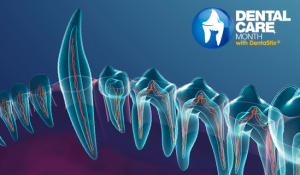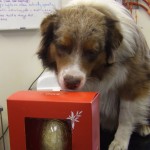Many people are not aware that a common plant such as the Lilly is extremely poisonous to cats. All parts of the plant, stem, flowers and pollen are poisonous.
If your cat ingests any part of a Lilly plant you should seek immediate veterinary attention, as it can cause acute kidney failure.
 After a cat has eaten part of a lily plant, signs of stomach upset (vomiting, lack of appetite, or lethargy) may be present. Clinical signs may be seen from 2 hours to 4 days after ingestion of the plant, and signs of kidney failure may begin which can include loss of appetite, depression, vomiting, and occasionally lack of urination.
After a cat has eaten part of a lily plant, signs of stomach upset (vomiting, lack of appetite, or lethargy) may be present. Clinical signs may be seen from 2 hours to 4 days after ingestion of the plant, and signs of kidney failure may begin which can include loss of appetite, depression, vomiting, and occasionally lack of urination.
With early treatment (within 18 hours) with aggressive decontamination (making the cat sick and giving activated charcoal) and fluid therapy for 48 hours the prognosis can be good with complete recovery.
Luckily lillies do not appear to be toxic to dogs or rabbits.
Dog Flea products containg pyrethrins
Cats are much more sensitive to pyrethrins than dogs. Poisoning usually occurs when a spot on dog flea product is administered mistakenly to a cat. These pyrethrin containing spot on preparations are the ones commonly found in pet stores and supermarkets.
Signs of toxicity are varied and include excess salivation, vomiting, weakness, excitability, tremors, seizures.
Treatment involves controlling seizures with phenobarbitone or gas anaesthesia, (they are less responsive to diazepam), intravenous fluids, maintenance of body temperature and glucose levels, and washing the product off the skin with washing up liquid. Signs may persist for 1-4 days.
The prognosis can be good with early and aggressive treatment.
Occasionally cats may also show scratching at the application site , chewing feet or extremities, and nervous behaviour due to a problem called paresthesia. This is treated with decontamination of the site with washing up liquid, and application of vitamin E oil to the application site.
Aspirin and salicylates

Aspirin (acetylsalicylic acid) is present in many over the counter analgesic ointments, as well as the common tablet form. Non aspirin salicylates are found in topical acne creams, lotions, sunscreens, facial masks, and make up, deep heat, Ralgex cream and Boots pain relief heat rub.
Toxicity to cats with aspirin is possible with ingestion of more than 30mg per kilogram weight of cat. Thus for an average 4kg cat 120 mg of aspirin may be toxic.
Signs of toxicity can appear hours to days after ingestion, causing vomiting, diarrhoea and gastrointestinal ulceration with blood in the vomit or black faeces. Collpase, fever, tremors seizures, bone marrow suppression and cerebral oedema may also be seen.
Treatment involves making the cat vomit or washing out the stomach, followed by activated charcoal. A course of gastro-intestinal protectants (sucralfate and h2 blockers) may be needed for 10-14 days. Intravenous fluids and regulation of body temperature may also be needed.
Paracetamol
Paracetamol is highly toxic to cats at a dose rate of 45mg/kg or 180mg for an average 4kg cat), and symptoms include blue (cyanotic) mucous membranes (gums, or tongue) and difficulty breathing. later symptoms include blood coloured urine and jaundice (yellow colouration of skin and mucous membranes due to liver damage).
Treatment includes making the cat vomit, or washing out the stomach, oxygen therapy, gastric protectants (activated charcoal), intravenous fluids.
The prognosis is generally poor, even with treatment.
Ethylene Glycol (Antifreeze)
Antifreeze products that are used in car radiators and sometimes brake fluid, contain ethylene glycol that is highly toxic to cats. The substance has a sweet taste and may be drunk or the cat may get it on their feet and then lick it off.
It causes vomiting, a staggering walk and kidney failure. Treatment involves decontamination of the cat and hospitalisation and intravenous fluid therapy. Early treatment can give a full recovery but unfortunately if kidney failure develops it can be fatal.
Liquid potpourri
Cats exposed to liquid potpourri can develop server skin , eye and mouth lesions. They contain essential oils and cationic detergents that are toxic to cats.
Treatment is usually successful but may require several days of hospitalisation and supportive care.
Glow sticks
Glow sticks when broken contain a substance that is irritating to cats and may cause excessive salivation, agitation and vomiting. The symptoms are usually shor-lived lasting only a few minutes. Normally washing any part of the coat contaminated and giving milk or tuna juice to dilute the taste is all that is required.
For contact details of your local surgery see www.youngvets.co.uk









